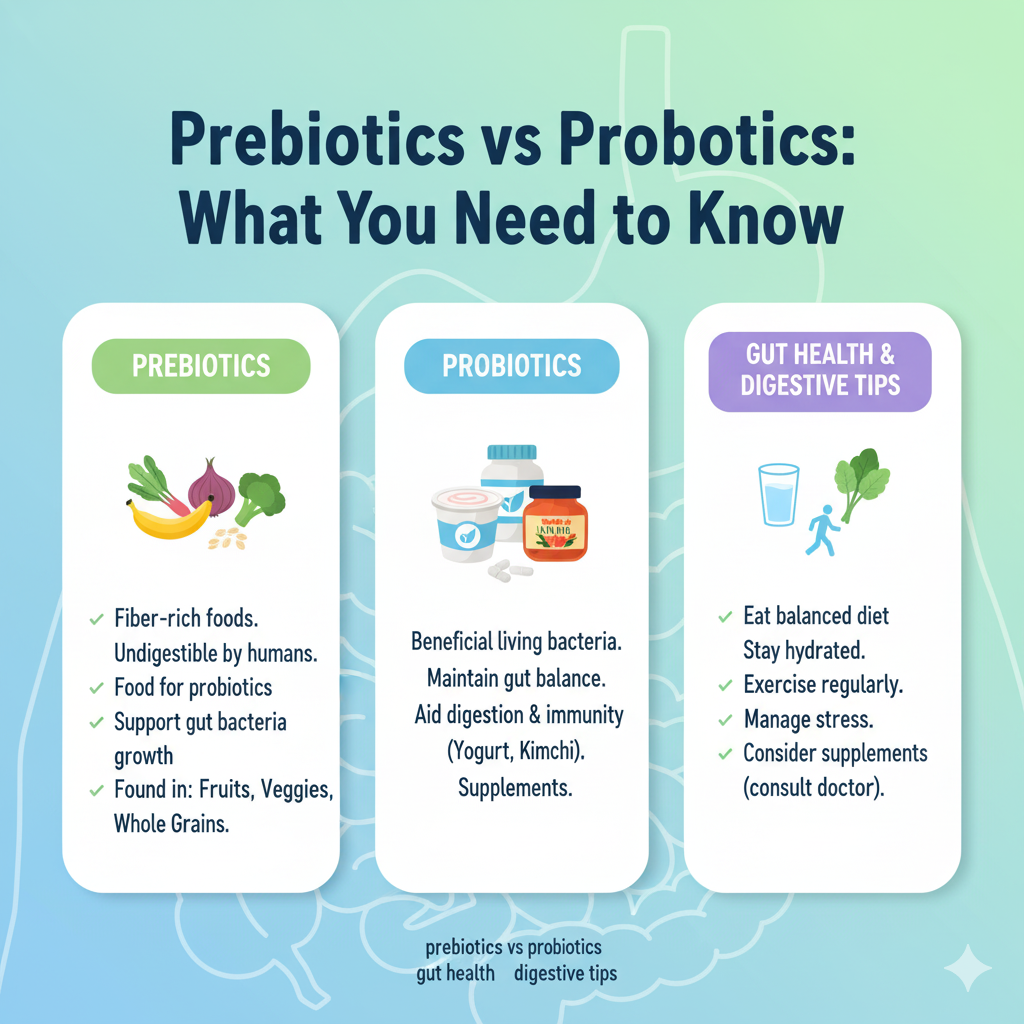The human gut is home to trillions of microorganisms, collectively known as the gut microbiome. These bacteria, yeasts, and other microbes play a crucial role in digestion, nutrient absorption, immune function, and even mental health. When the balance of gut flora is disrupted — due to stress, antibiotics, poor diet, or illness — it can lead to digestive discomfort, low energy, and weakened immunity.
This is where probiotics come into play. Probiotics are live microorganisms that, when consumed in adequate amounts, help restore balance to the gut microbiome. But not all probiotics are created equal. Today, many experts are recommending multi-strain probiotics over single-strain supplements because they offer a wider range of benefits.
In this article, we will explore why multi-strain probiotics may be the best choice for supporting healthy digestion, strengthening the gut flora, and improving overall well-being.
Understanding Multi-Strain Probiotics
Probiotics come in two main types:
- Single-strain probiotics: Contain only one type (strain) of beneficial bacteria.
- Multi-strain probiotics: Contain a combination of different strains, often from multiple species.
A multi-strain probiotic supplement might include several types of Lactobacillus, Bifidobacterium, or even beneficial yeasts like Saccharomyces boulardii. By combining multiple strains, these supplements aim to mimic the natural diversity of the human gut.
Why Strain Diversity Matters
Your gut microbiome is incredibly diverse, with hundreds of bacterial species working together to maintain balance. Each strain has a slightly different function — some help break down fiber, others produce vitamins, and some keep harmful bacteria in check. A multi-strain probiotic can support multiple areas of digestive and immune health at once.
Key Benefits of Multi-Strain Probiotics
1. Better Gut Flora Diversity
One of the biggest advantages of multi-strain probiotics is their ability to promote a more diverse gut microbiome. Microbial diversity is a key marker of gut health — the more varied your gut bacteria, the more resilient your system is against harmful microbes and digestive disturbances.
Single-strain probiotics may temporarily boost one type of bacteria, but multi-strain formulas provide a broader spectrum of support. This diversity can help restore balance after antibiotics, illness, or a period of poor diet.
2. Improved Digestion and Nutrient Absorption
Different probiotic strains specialize in breaking down different types of food. For example:
- Lactobacillus acidophilus helps digest lactose, making dairy easier to tolerate.
- Bifidobacterium bifidum assists in breaking down complex carbohydrates.
- Lactobacillus plantarum produces short-chain fatty acids (SCFAs) that nourish intestinal cells.
When these strains work together, they improve the efficiency of digestion, reduce gas and bloating, and help you absorb more nutrients from the food you eat.
3. Enhanced Immune System Support
Around 70% of your immune cells are located in the gut. Multi-strain probiotics can strengthen the immune system by increasing beneficial bacteria that interact with immune cells and help regulate inflammation.
Studies show that people who take multi-strain probiotics regularly experience fewer colds, shorter durations of illness, and better resistance to infections. Some strains even stimulate the production of natural antibodies and immune-boosting compounds.
4. Reduction of Digestive Discomfort
Multi-strain probiotics are particularly beneficial for people with common digestive issues such as:
- Irritable Bowel Syndrome (IBS): Certain combinations of probiotics have been shown to reduce bloating, gas, and abdominal pain.
- Diarrhea: Especially antibiotic-associated diarrhea and traveler’s diarrhea, which can be significantly reduced with multi-strain formulas.
- Constipation: Some strains encourage regular bowel movements by improving stool consistency and gut motility.
By targeting multiple aspects of digestion, a diverse probiotic blend can provide more comprehensive relief than a single-strain product.
5. Protection Against Harmful Bacteria
Beneficial bacteria compete with harmful microbes for space and resources in the gut. Multi-strain probiotics can “crowd out” harmful bacteria like Clostridium difficile and Escherichia coli, reducing the risk of infection.
Certain strains even produce natural antimicrobial substances that prevent pathogenic bacteria from sticking to the gut wall. This protective effect helps maintain a healthy balance of gut flora.
6. Support for Mental Health and Mood
The gut and brain are connected through the gut-brain axis, meaning that a healthy microbiome can positively influence mood and mental well-being. Multi-strain probiotics may help reduce symptoms of stress, anxiety, and mild depression by supporting the production of neurotransmitters like serotonin.
Emerging research suggests that taking a combination of strains may be more effective for mental health than taking a single strain, as different bacteria influence the nervous system in unique ways.
7. Post-Antibiotic Recovery
Antibiotics, while lifesaving, can wipe out both good and bad bacteria in the gut, leading to imbalance and digestive issues. Multi-strain probiotics are particularly helpful during and after antibiotic use because they repopulate the gut with multiple beneficial species, restoring balance faster.
Choosing the Right Multi-Strain Probiotic
Not all probiotic supplements are of equal quality. When selecting a multi-strain probiotic, consider the following:
- Number of Strains: Look for a supplement with at least 5–10 different strains for optimal diversity.
- CFU Count: Colony-forming units (CFU) indicate the number of live bacteria per serving. Aim for at least 10–20 billion CFUs for general health support.
- Targeted Formulation: Some probiotics are formulated for specific concerns (e.g., women’s health, immune support, IBS relief). Choose one that matches your needs.
- Quality Assurance: Make sure the product is third-party tested and lists strains by their full names (e.g., Lactobacillus rhamnosus GG) rather than just species.
- Storage: Some probiotics need refrigeration to maintain potency. Check the label for storage instructions.
Combining Multi-Strain Probiotics with Prebiotics
For best results, pair multi-strain probiotics with prebiotics — fibers that feed beneficial bacteria. Together, they form synbiotics, which improve the survival and effectiveness of probiotics in the gut.
You can get prebiotics from foods like garlic, onions, leeks, oats, and bananas or from dedicated prebiotic supplements.
Lifestyle Factors That Support Gut Flora
Even the best probiotic supplement will work better if you also support your microbiome through healthy habits:
- Eat a diverse, plant-rich diet: Aim for 30+ different plant foods per week to feed a variety of gut bacteria.
- Stay hydrated: Water helps maintain smooth digestion.
- Exercise regularly: Physical activity promotes a healthy gut environment.
- Manage stress: Chronic stress can disrupt gut flora balance.
- Sleep well: Aim for 7–9 hours per night to allow your gut and immune system to reset.
Possible Side Effects and Safety
Multi-strain probiotics are generally safe for most people, but some may experience mild side effects like gas or bloating in the first few days. This usually subsides as your gut adjusts.
If you have a compromised immune system or serious medical condition, consult a doctor before starting probiotics to ensure they are safe for you.
Final Thoughts
Multi-strain probiotics offer a powerful way to support gut health by promoting microbial diversity, improving digestion, enhancing immunity, and even supporting mental well-being. Unlike single-strain probiotics, they provide broad-spectrum benefits by targeting multiple aspects of gut function at once.
For most people, combining a high-quality multi-strain probiotic with a healthy diet and lifestyle is one of the best strategies for building a resilient, balanced microbiome. Over time, these habits can translate into better digestion, fewer illnesses, improved mood, and a stronger immune system.




